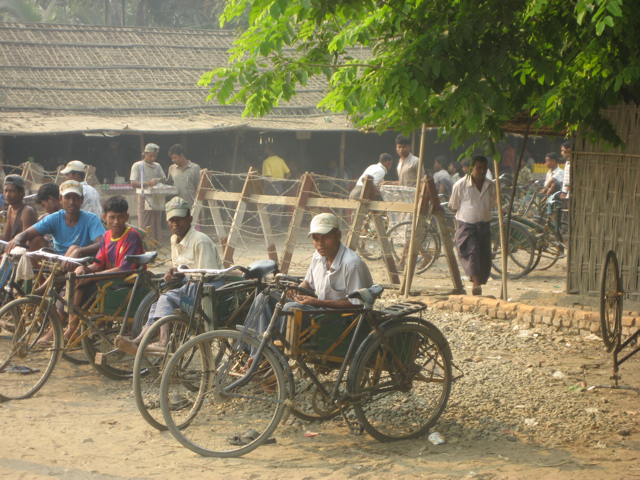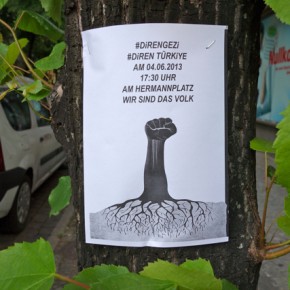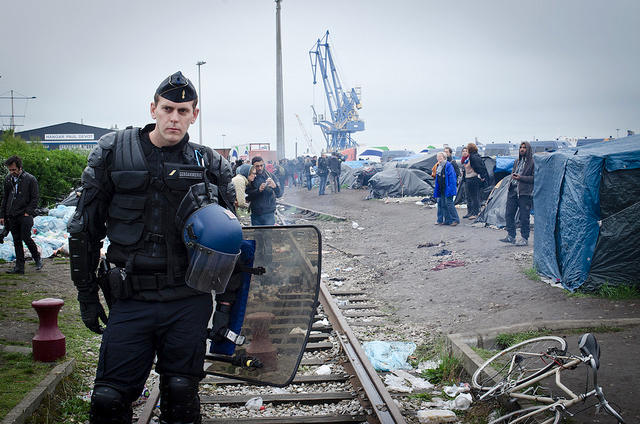Overnighting in Bangkok, I met an American aid worker who had spent many of his formative years in the city. My new friend, who could speak fluent Thai, was well-versed in the culture, recalled how he had learnt of a local prophecy concerning the country I was due to travel to the next day. I was intrigued, and asked him to tell me more.
“The prophecy states” he replied with a smile “that when King Rama IX dies, Burma will overtake Thailand, historically its biggest rival, in power and influence. It’s a well known story, but I am not sure of its provenance.”
Not given to superstition, the forecast still seemed somewhat plausible, an impression prompted in part by articles I had scanned in the business publications freely available in the various airports I had passed through en route to the Thai capital. While rarely providing inspiring reading material to someone of my predispositions, I was struck by the excited tone of the op-eds and features on the topic of ‘Myanmar’ in the Wall Street Journal, the Economist et al. By all accounts, many investors were salivating over the potential of a country commonly referred to as ‘the world’s newest economic frontier.’
It should also be noted that in recent days the McKinsey Global Institute, a prominent management consultancy firm, announced that the country ‘could conceivably quadruple the size of its economy’ in less than two decades.
The auguries of the financial media aside, Burma is gaining significance in other ways. Positioned between two rising international powers, India and China, located in the heartland of the economically fastest-growing region of the world, the Asian state has recently emerged as a strategically important nation in the eyes of the US and the west. Accordingly, moves to bring the former pariah state in from the cold following a series of reformist moves by its quasi-civilian government have been expedited.
Sadly, however, such developments have been happening against the backdrop of continued internal unrest, most evidently demonstrated by seemingly organised bouts of anti-Muslim violence that have over the past year spread across the country from the western province of Arakan to Shan state in the east.
These events have prompted concerns that Burma’s human rights record may not be advancing along with its international status. In recent months alone, thousands of Muslims have suffered displacement as a result of attacks targeting their community, leading to the torching of mosques, businesses and homes. Scores of innocent people, including children, have been murdered by mobs while police and security forces have been standing by, and in one particularly egregious case, even filming dying victims but appearing to do little to assist them.
In March, Human Rights Watch claimed that state agencies had been complicit in crimes against humanity undertaken as a part of a campaign of ethnic cleansing directed at the Muslim Rohingya minority in the Arakan area, which left hundreds dead and over 130,000 displaced. So far, the government response to this and other grave charges has been insubstantial- and western ties with the country have continued to deepen.
Evidently, there is reason for concern that all may not be rosy in the new Burma, despite its headlined advances, progressive-sounding pabulum from President Thein Sein or the latter’s public handshakes with Barack Obama.

In my analysis, this will continue to be the case as long as the power in Burma ultimately lies with the armed forces, an institution that has for at least fifty years sought to ensure its own position as the unconquerable masters of the land, while committing all manner of brutal crimes against civilians.
Recent statements by Thein Sein indicate that little looks set to change in this regard as long as he’s in charge. This should be no real surprise – the Burmese President himself, described in a wikileaks-released diplomatic cable as a ‘consummate insider’ of the former regime, was once a general and was hand-picked by his war criminal predecessor Than Shwe to succeed him. The national constitution, authored by the Junta in 2008 and rejected by Aung San Suu Kyi, affirmed the centrality of the military to political life and afforded immunity to the same institution from past crimes.
Though the recent reforms have not been merely cosmetic, and are to be welcomed, until a genuine democratisation process begins at the constitutional level, Burma cannot be regarded as anything approaching an emancipated state.
But such a brave leap forward is unlikely to happen anytime soon, despite the wishes of many within the country, thanks in part to the moral lassitude of Europe and the United States.

Mark Farmaner of Burma Campaign UK, an organisation dedicated to the promotion of human rights and democracy in the Asian state, opined that Britain, like many western countries ‘are downgrading human rights as a priority and talking up trade’ while political elite in Naypyidaw are playing a careful game. ‘The Burmese government play everything long term. They think and plan long-term… so they just want to put a dampener on [real reform], take some token measures that take some pressure off from the international community and they’ll happily leave the rest of it unresolved’, Farmaner observed.
On the issue of the ongoing violence against Muslims throughout the country, Farmaner added ‘through action and inaction [the government] are co-operating in the incitement and violence that is taking place.’ He did not go so far as to assert that the government were directly behind the attacks.
Who is behind the violence against Muslims?
It appears that the main perpetrators are zealous Burmese nationalists, influenced by the popular ‘969’ campaign organised by influential Buddhist clerics and their followers. The campaign encourages Buddhists to boycott Muslim shops and is dedicated to ‘protecting’ the overwhelming Buddhist majority against the 4% of the population who are Muslim. The demagogic monk, Ashin Wirathu of Maseoeyin Monastery in Mandalay, an outspoken icon of the movement recently mentioned that he aims to make the movement like the English Defence League, which he admires.
Despite appearances, rumours about some level of high-level government or military involvement in both the recent attacks on Muslims throughout the country and the 969 movement are widely circulated and increasingly harder to dismiss. Evidence of the organised nature of the violence, in addition to credible eyewitness reports that the police and firefighters have consistently failed to respond appropriately to Muslim distress, appears to support such claims. The lack of concerted action taken to prosecute the perpetrators – or the monks that have stirred up anti-Muslim feeling – likewise appears telling.
In a recent article in the Straits Times, veteran reporter Nirmal Ghosh cited internal sources who told him that the anti-Muslim mobs ‘are mainly men from the Swan Arshin – a loose cadre of thugs, criminals and ex-convicts used by the old military regime to intimidate and break up protests.’
This was an interesting revelation for me to read, as a very well-informed source with years of experience in the Sangha whom I met in Burma (whose identity I must protect for security reasons) asserted emphatically that the Swan Arshin and the 969 movement were closely linked.
Maung Zarni, a visiting fellow at the London School of Economics’ civil society and human security research unit, expressed the view that ‘two things are happening in Burma concurrently that need to be highlighted’ in relation to the spate of anti-Muslim incidents. These were that ‘the state-backed, organized ‘mob’ violence and enveloping neo-Nazism [targeting Muslims and other non-Buddhists in the country] are related and mutually reinforcing. That is why, it’s so dangerous and things are going to get worse for the Muslims and the Rohingya.’
Zarni further added that he had ‘looked into the accusations’ reported by Ghosh and that ‘they definitely are corroborated by what I know.’
A reliable and well-informed source within Naypyidaw told me that they were aware of precisely the same allegations, and had previously independently corroborated the details of Ghosh’s story – almost in its entirety. Another source I am in contact with, who possesses deep knowledge of Burma and has contacts in high-level positions within the country made identical statements, pointing the finger at a former minister alleged of being involved in the infamous Depayin massacre of 2003. The same person was named by Ghosh’s source in his article.
Whether such allegations are indeed true or not, it is clear that Burma still has a long way to go in transcending its past, and being able to divest itself of a ruling class long used to the machinations and abuse of power.
Bearing this in mind, it is alarming to have read that the British armed forces are proceeding to build ties with the Burmese military, helping to legitimise an institution dominated and led by unindicted war criminals. For this reason, most western countries have so far resisted overtures from Naypyidaw on military co-operation. As its recent sale of arms, and its new trade deals with Sri Lanka demonstrates, however, Britain is willing to prioritize security relations over human rights.
You don’t need a fortune teller to predict what all this squalid dealing will mean for Muslims and ethnic minorities. Britain should use its newly-found leverage over Burma to make the military accountable for its actions, and to seek deep-rooted political reform, before getting any further into bed with the country’s questionable leadership.
Photographs courtesy of the author. All rights reserved.





